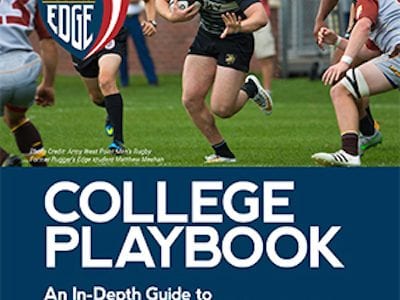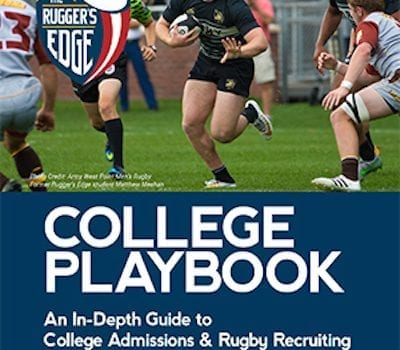

Common Sense College Recruiting Guidelines
HS / CLUB RUGBYLEVELUP INSIDERS October 11, 2018 Karen Fong Donoghue 0

My College Recruiting Guidelines will help you with what you need to look out for in terms of red flags of unacceptable behaviors.
As more college programs are able to recruit in the traditional sense, I want to make students and parents aware of the conduct that is expected.
Recruitment is a funny process because for the most part, we urge students to be proactive.
We have them do all of the communicating, however this does not mean parents, high school coaches and other invested adults should be left out of the conversation.
High school students are minors, after all, so we all need to ensure they are protected.
Feature image, The Rugger’s Edge College Playbook 2018 – 4th Edition An In-Depth Guide to College Admissions & Rugby Recruiting
Here are some of my most critical College Recruiting Guidelines to follow:
1 I do stress that for successful college recruitment, communication should be between a student athlete and college coach. Meaning the parent(s) should not be the one directing all the communication.
Any communication between a player and college coach should be messages that a student is comfortable showing a parent.
I recommend that students email college coaches and cc their parent(s) on the communication so everyone is on the same page.
2 I would urge you to stick to email for all recruiting communication instead of using text, Facebook/Facebook Messenger, Instagram, or other social media platforms.
If a coach reaches out to you first through social media, move the conversation to email and follow step 1 above. You can be friendly in your conversations, but you are not friends.

Photo courtesy Karen Fong Donoghue, The Rugger’s Edge
3 Anyone stating they are part of a college program should be easily identified through the rugby team’s website (listed under Staff or Coaches).
Just because someone says they are a part of the team and could help you does not make it so.
Due diligence makes sure the person you are talking to is truly part of the program. The Director of Rugby or Head Coach is the person who can speak to your chances of admission or scholarship.
4 In person meetings should take place in an official place (e.g. a coach’s office, athletics department meeting room).
If you’re meeting off-campus, meetings should be in a public location. At no point should you have to go back to a coach’s hotel or something to that effect to discuss recruitment.
Anything a college coach says to you in person should be something he/she can say in front or your parents or high school coach.
5 On recruiting trips (unofficial or official), there should be a detailed agenda of your visit. Your parents should be provided this ahead of time also.
The itinerary should list with whom you will be meeting, when, and where. All contact information should also be listed.
It goes without saying, under no circumstances should you be put in a situation where you are uncomfortable or feeling unsafe. If this happens, call your parents and leave the school immediately.

6 If you (the student) ever feel like a college coach (or even a college player!) crosses the line with you, tell a trusted adult.
You should not feel ashamed or that you did anything wrong. You will not “lose a scholarship” or your college admission if you report someone for acting inappropriately. A resource you can always report to is Safesport.
College Recruiting Guidelines Bottom Line
The recruitment process is for the student athlete to drive, but the parent(s) are still along for the ride. They MUST be included in all conversations. If a coach resists this, there is a problem.
[bsa_pro_ad_space id=24]









No comments so far.
Be first to leave comment below.